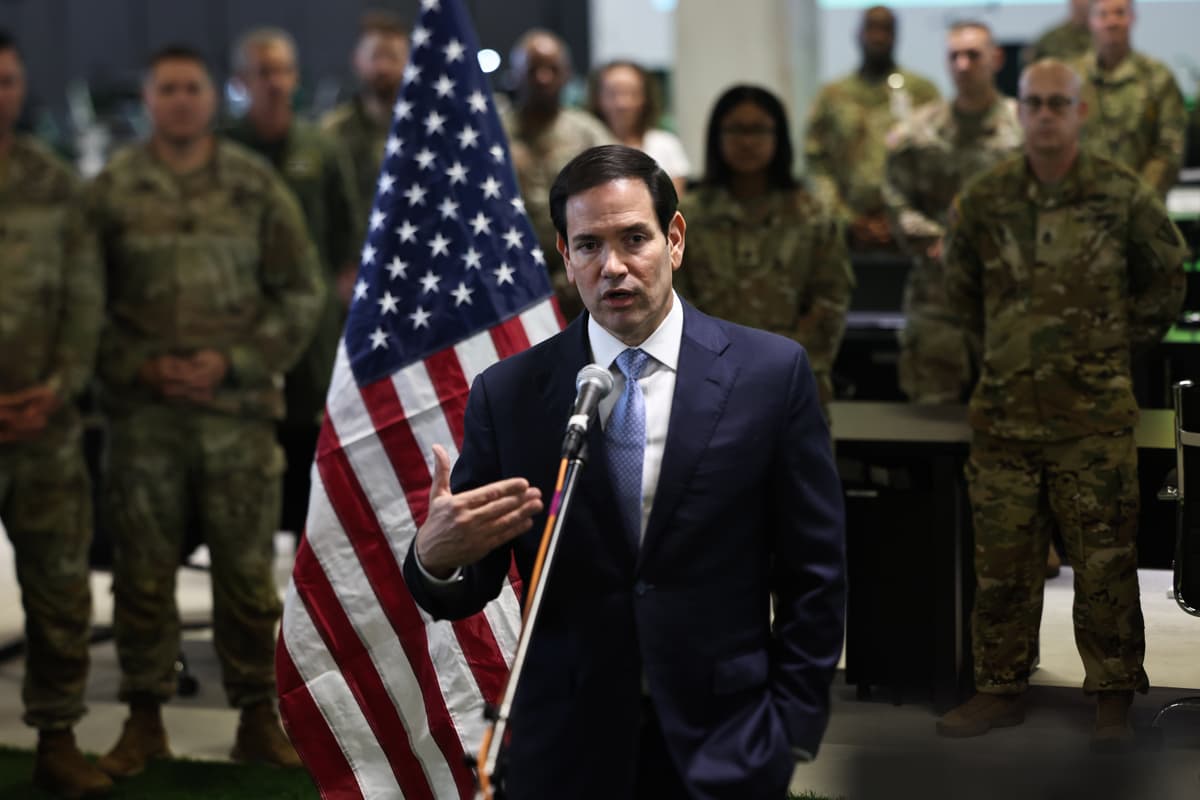America Struggles To Unite the UN Behind a Gaza Resolution
To send troops to the Strip, some countries ask for a global stamp of approval, while Israel is wary of even marginal UN involvement.

Potential contributors to a multinational force for Gaza, as envisioned in President Trump’s 20-point plan, are hoping a United Nations approval stamp would help them recruit at home. At Turtle Bay, though, agreements are hard to achieve.
A proposed draft for a Security Council resolution that America circulated to the body’s 15 members last week is meeting resistance from Communist China, Russia, and some Arab countries, as well as France. “It needs to be done the right way, and obviously there’s a lot of different countries” and “you have to balance their interests here,” Secretary Marco Rubio told reporters Wednesday.
Indonesia, for one, already is reportedly recruiting troops to serve in Gaza. America might ask other Arab and Muslim countries to serve there. But could such a force fulfill its most essential task: ensuring the demilitarization of Gaza?
“It shouldn’t be a fighting force,” Mr. Rubio said, “because the agreement that was signed and that all parties agreed to calls for the demilitarization of Hamas.” Others need to “bring about pressure on Hamas to live up to that commitment.”
Hamas officials, though, consistently say they never agreed to stage two of Mr. Trump’s plan, which calls for its disarming. Countries that might be asked to act more forcefully than to just “pressure” Hamas are telling Americans they need the cover of a UN resolution to dispatch troops to Gaza.
American diplomats at the UN circulated a revised proposal for a resolution on Thursday. On the same day Russia, which has a veto power in the Security Council, signaled it might sink the entire effort. It circulated a competing proposal, which in effect would end America’s leadership and put the UN in charge of Gaza instead.
America, Qatar, Egypt, the United Arab Emirates, Saudi Arabia, Indonesia, Pakistan, Jordan, and Turkey issued a joint statement Friday expressing “support for the security council resolution currently under consideration, drafted by the United States after consultation and in cooperation with council members and partners in the region.”
During the week, several Arab countries, as well as France, claimed that the original American draft is insufficient in charting a path to Palestinian statehood. The reference to a transition to Palestinian control of Gaza in the new draft is still vague. The Israeli government opposes having Hamas or the Palestinian Authority in control of Gaza.
Jerusalem diplomats declined the Sun’s requests for comment. Yet, as a proposed International Stabilization Force for Gaza would operate in areas under Israeli control, it would be hard for a UN-backed plan to ignore Jerusalem’s wishes. The American-proposed resolution specifies that the force will act in coordination with Israel and Egypt.
“Israel is in effect the host country,” a former Israeli deputy UN ambassador, Daniel Carmon, tells the Sun. Yet Israel traditionally is wary of any UN involvement in its affairs.
The proposed American resolution, for one, calls for a semi-annual progress report to the Security Council on the Gaza plan’s implementation. That could be “problematic, “ Mr. Carmon says. If the UN is involved in these reports, “each Israeli violation will be highlighted,” he says.
As if to make that point, the UN Interim Force in Lebanon issued a one-sided report Friday, accusing Israel of building a defensive barrier just across its border. That “wall,” it said, rendered “more than 4,000 square meters of Lebanese territory inaccessible to the Lebanese people.”
Rather than the biased UN, Mr. Trump’s plan envisions a transitional Gaza-governing body, a Board of Peace, over which he would ultimately preside. The proposed international stabilization force, which would be charged with overseeing security in the Strip, would also be outside of the UN peacekeeping department’s purview, and would be overseen by Americans.
In the competing Russian proposal to the Security Council, though, America is not even mentioned. Instead, it requests that the UN secretary-general “identify options” to maintain the current cease-fire and plot future steps. It also highlights the UN’s role in promoting the two-state solution.
The Russian proposal is no more than an attempt to “troll the Americans,” a UN-based diplomat told the Sun. If it is even brought to a vote, he added, it is unlikely to gain the necessary nine supporters. And if it does, America will veto it. Russia, perhaps with the aid of Communist China, might then retaliate by vetoing the American draft.

